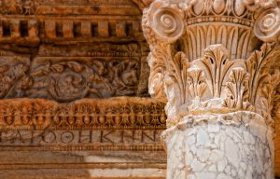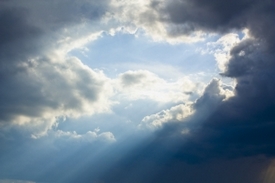The Rapture of the Church, Part 6
 Read Part 1, Part 2, Part 3, and Parts 4 & 5.
Read Part 1, Part 2, Part 3, and Parts 4 & 5.
The Dead in Christ
We have briefly looked at three of the four spectacular things God will do just before the rapture of the church: (1) “the Lord Himself will descend from heaven with a shout;” (2) “the voice of an archangel [Michael]” will be heard; and (3) “the trumpet of God” will sound. Then—and what an event this will be—all “the dead in Christ will rise” (1 Thess. 4:16, NKJV).
Who are these people? They are people who have believed in Christ since the church began nearly 2,000 years ago in Jerusalem on the Day of Pentecost (Acts 1-2). They include men, women and children from many people groups from around the world, speaking many hundreds of languages and representing a vast spectrum of cultures.
Everyone who has died as a little child will also be resurrected, for the Lord Jesus made special provision for them. “Take heed that you do not despise one of these little ones, for I say to you that in heaven their angels always see the face of My Father who is in heaven. Let the little children come to Me, and do not forbid them; for of such is the kingdom of heaven” (Matt. 18:10; 19:14).
This truth was revealed a thousand years earlier to King David, for when his baby boy (by Bathsheba) died, he was comforted with this assurance: “I shall go to him” (2 Sam. 12:23). David also knew that a person’s life begins at conception (cf. Ps. 51:5). Millions of people who have been killed—aborted—before birth are now in God’s heaven.
 Read
Read 

Discussion